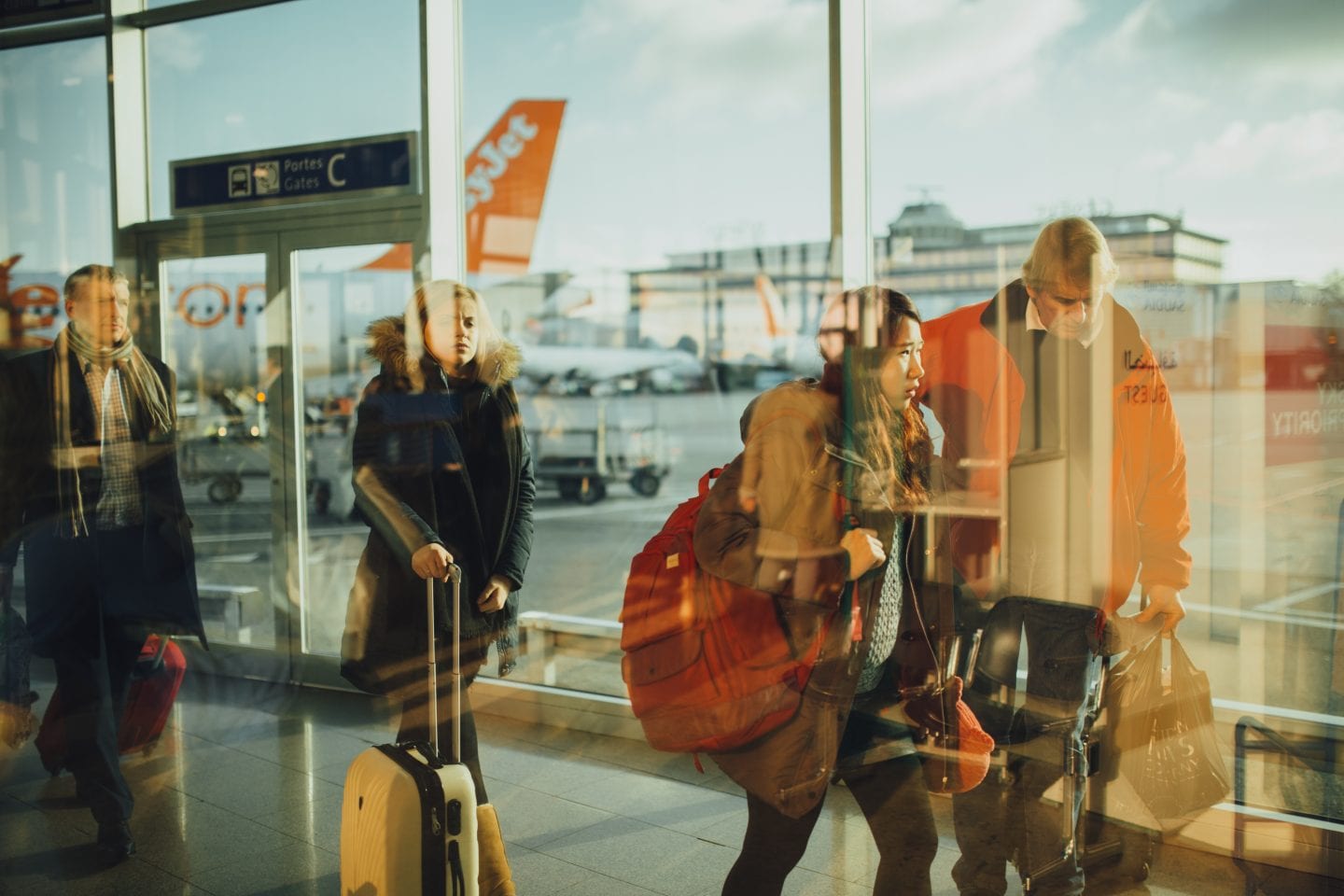It doesn’t matter how often you fly the drama of arriving at your destination and realising your luggage has been left in transit is an annoyance like no other.
Although you could choose to use luggage storage nyc to avoid losing your baggage in the first place, what happens if you realise you’ve lost your luggage in an airport or an airline has lost your bag in transit?
The ensuing rigmarole you go through with the airline customer service desk and your travel insurance company eat into the first few days of your trip leaving you irritated and deflated and wishing you had stayed at home.
For those off on their holiday, lost luggage is an major inconvenience however for long term travellers lost luggage can sometimes mean the loss of all worldly belongings. Long term travellers often travel with all they own in the world having sold everything else to fund their adventure and give them the freedom to roam, a lost bag is like loosing the contents of your wardrobe or living room.
If like me, you’re always keen to be reunited with your luggage every time you arrive at a new destination, taking some simple steps before you check in can save you hours of stress once you land. Here’s my guide to avoiding lost luggage when you fly.
Luggage preparation before you fly
Try and travel as light as possible, pack only hand luggage if you can. If not try and avoid checking anything that you can’t afford to live without or replace.
Don’t over pack your bag, a bag bursting at the seam will put additional stress on the zippers, seams and handles and is more likely to be damaged in transit as a result. Also remember if an airline deems any damage to your bag or the contents is due to over packing your bag your claim for compensation will be void.
Designer bags and brand name sports luggage attract unwanted attention, theft from your bags is more likely if they appear to contain expensive items. Consider travelling with un-branded luggage to avoid attention.
Consider shipping your luggage ahead, domestic and international couriers such as FedEx, DHL and UPS as well as specialist companies like Luggage Concierge or Virtual Bellhop charge competitive baggage rates and can save you hours stood in line at the airport dropping off and retrieving you bags.
Take a photo of your bag with your mobile phone before you check in, it will save you time at the lost luggage desk should you find yourself their later on.
Don’t under estimate the time required to reach a connecting flight, it’s not just you who needs to high tail it across the airport complex your bag has a similar challenge but is unaware of the urgency. Consider the time you are allocating yourself in between flights connecting flights, especially if you have to collect and re-check your bag.
Luggage preparation before you check in
Remove old airline tags from your luggage to avoid confusion.
Purchase a suitcase with a luggage tag window attached to the exterior, tags attached at check in can be removed or torn off in transit. It is also a good idea to write your name and flight itinerary on a piece of paper inside your bag in case any damage to the exterior occurs during transit.
Some bags now come with built in electronic luggage tags that allow you to check-in your bag from your home or hotel a dedicated app, then smoothly and conveniently drop it off with select airlines. Your flight and contact information are displayed on the outside of the bag, eliminating the need for paper tags, and the batteries will last for hundreds of trips.
Consider purchasing a brightly coloured or patterned case to ensure you can identify it easily in the sea of black and navy blue on the carousel. A ribbon or plastic luggage tag will also ensure individuality.
With bag restrictions increasing regularly check and double check your allowance, carry on bags are regularly scrutinised for size and weight, ensure you carry on bags are adequately marked and labelled in case it exceeds the limit and you are required to check it at the last minute.
Ensure you pack a 24 hour survival kit in your carry on (obviously be aware of liquid and aerosol restrictions here) if your luggage is lost or delayed at least you can survive until the issue is resolved. Don’t pack any essential items such as medicines that you know you will need once you get off the plane.
Helpful ‘at the airport’ advice
Check in early for your flight, the risk of your luggage not finding its way onto the plane is reduced.
Don’t spend hours in duty free, head straight to the carousel to ensure you are ready and waiting when your bag arrives.
After you’ve reclaimed your bag on the other side, check it before you leave the baggage claim area just to make sure all your stuff is inside.
So you’ve done everything you can to avoid having your bag lost in transit yet the rest of the passengers have collected their bags from the carousel and yours has yet to appear.
Fly direct. Changing flights will increase the chances of lost luggage.
How to report your luggage as lost at the airport
Find the customer service desk of the airline you were travelling with or the lost luggage desk and fill out the relevant paperwork. Do not leave the airport without doing this, as it may result in you being unable to claim your missing bag.
Ensure you provide the airline with :
- Flight information: Your route and flight numbers.
- How many bags you’re missing.
- Where you last saw your bag(s). A description of your bag(s).
- Your home address.
- Your temporary address (hotel, relative you’re staying with, etc.).
- How long you’ll be staying.
- A contact phone number.
Be prepared to live without your bag for the next 24 hours at least, ask for a toiletries kit and directions to shops where you can buy any items you may need.
The person sat behind the customer service desk will not know when you can expect to have your bag returned so it is pointless asking for a prediction.
Don’t vent your frustration at the customer service rep, it was not their fault and they are unlikely to assist you further if they feel your behaviour is inappropriate. Compose a strongly worded email to the CEO of the airline in your head instead.
Only 2% of all airline luggage is lost and not returned however it may take the airline between 20 and 45 days to accept the fact that they can’t find you bag.
Be aware that you will have to provide an itemised list of the contents and remember that you will not get full compensation for everything. Most airlines have a list of things they simply won’t cover, such as jewellery or cash. Check out this helpful guide for more insight.
Also, even if you can provide receipts, they probably won’t cover the full cost of your lost items. They factor deprecation into the total amount. Factor this into the equation when you pack you suitcase next time you fly.
✈ ✈ ✈
Have you ever had your luggage lost by an airline? Share you tips stories and tips for smooth air travel below.



